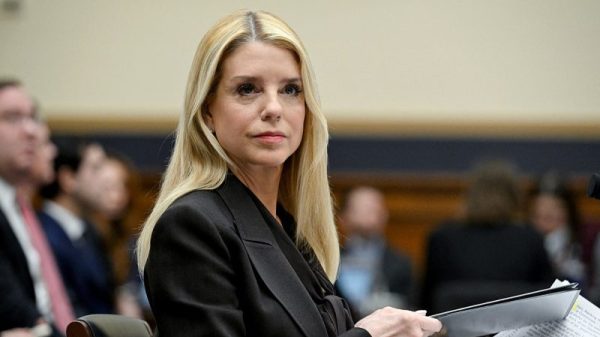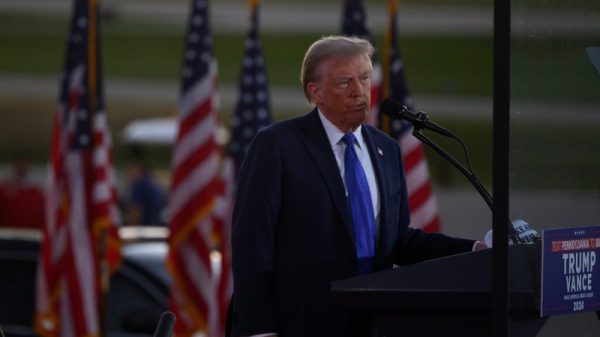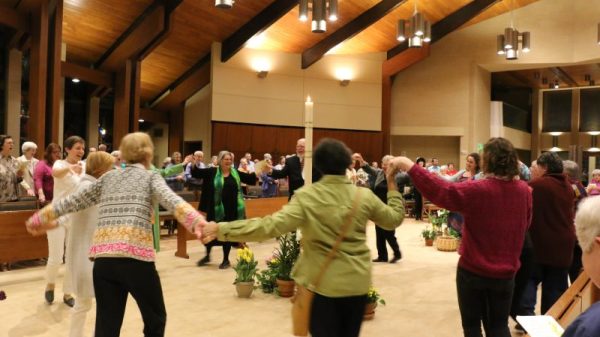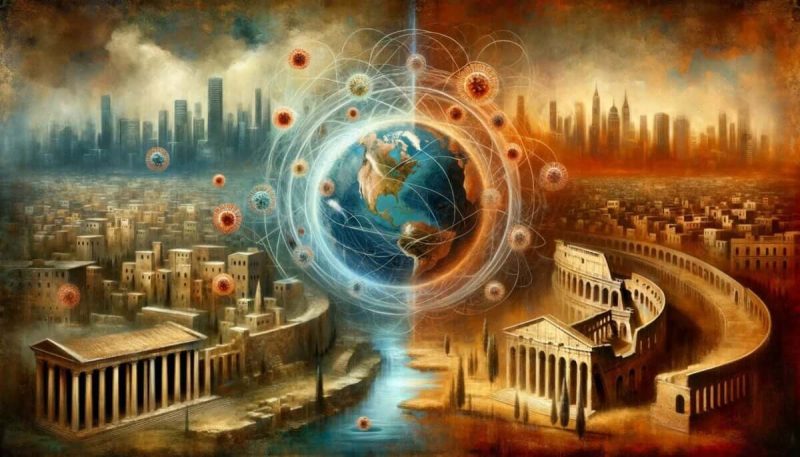Civilizations & Pandemics: A 300-Year Cycle Insight
Throughout history, an intriguing pattern has emerged, weaving the fates of human civilizations and pandemics together in a complex dance of rise, fall, and rebirth. This narrative isn’t just a testament to human resilience. It’s also a stark reminder of the cyclical nature that underpins our existence. Let’s delve deeper into this fascinating intertwining of historical trends and biological phenomena.
The Underlying Cycles of Human History
Imagine a civilization as a living, breathing entity, growing and evolving over time. According to Peter Turchin, a Russian historian, civilizations expand and contract in what he describes as “secular cycles.” These cycles span approximately 300 years each, encompassing periods of prosperity and unity followed by times of strife and fragmentation. The prosperity phase is marked by significant advancements, wealth accumulation, and societal cohesion. However, as these empires expand, they often overextend, leading to increased complexities and internal tensions.
These cycles aren’t just abstract concepts; they’re reflected in the fabric of history. Population growth and urbanization, symptoms of a civilization’s peak, create fertile ground for pandemics. When these pandemics strike, they act as a natural corrective mechanism, albeit a brutal one, rebalancing the scales and often signaling the beginning of a civilization’s decline. This phase of contraction isn’t merely about disease. It is intertwined with economic downturns, social upheaval, and political fragmentation.
From Rome to the Mongols: Pandemic Patterns
To understand the cyclical interplay between civilizations and pandemics, we can look at concrete historical examples. The Roman Empire, under the rule of Augustus, experienced unprecedented growth and prosperity. However, this golden age set the stage for its eventual decline. The Antonine plague, which erupted in the second century AD, decimated a large portion of the Roman population. Moreover, it exacerbated existing social and economic strains and hastened the empire’s fall.
Similarly, the Mongol Empire’s expansion facilitated the spread of the Black Death across continents in the 14th century. This wasn’t just a health crisis; it was a geopolitical event that reshaped the world’s demographic and political landscapes. The Han Dynasty’s decline also mirrors this pattern, with widespread epidemics marking the empire’s disintegration phase.
These historical incidents underscore a critical point: pandemics are not isolated events. In reality, they are deeply intertwined with the social, economic, and political fabric of civilizations.
Spanish Flu to COVID-19: Modern Cycle Examples
Fast forward to the 20th century, and the Spanish Flu of 1918 presents a modern parallel. As one of the deadliest pandemics in history, it emerged in a world transformed by World War I, global travel, and technological innovation. The flu spread rapidly, exacerbated by movements of troops and civilians. And it demonstrated how technological advancements and globalization can amplify the spread of diseases.
The COVID-19 pandemic is the latest chapter in this ongoing saga. Originating in a highly globalized and interconnected world, it has highlighted the challenges and risks associated with our modern way of life. Before the pandemic, the number of international connections, exemplified by airline routes and global trade, had reached unprecedented levels. This connectivity, while a marker of progress, also posed significant risks, as the rapid spread of the virus across the globe showed us.
Reflecting on Past Cycles: Future Pathways
In delving deeper into the intricate ballet between human civilizations and pandemics, it’s essential to take a reflective pause and consider the broader implications of this historical interplay. The cyclical nature of human history, marked by periods of growth followed by decline, is not merely an academic observation but a call to action. These patterns, observed across centuries and continents, reveal a profound truth about the human condition and our interconnectedness with each other and the natural world.
The past pandemics, from the Antonine Plague to the Spanish Flu to COVID-19, serve as stark reminders of the vulnerability and resilience of human societies. They also underscore the importance of preparedness, cooperation, and adaptability in the face of unforeseen challenges. The aftermath of these pandemics often led to significant social, economic, and technological transformations. Thus, they reshaped societies in ways that were unimaginable before. For instance, the Black Death contributed to the end of the Middle Ages and the beginning of the Renaissance. It highlights how catastrophic events can lead to profound societal changes.
In our contemporary world, as we navigate the complexities of the COVID-19 pandemic, we find ourselves at a pivotal juncture. This moment in history presents an opportunity to rethink our approach to global health, governance, and community living. It also challenges us to question the sustainability of our current trajectories and to consider alternative paths that prioritize long-term well-being over short-term gains. The lessons from past cycles can inform our decisions and actions, helping us to build more resilient, equitable, and sustainable societies.
Beyond Health: Pandemics’ Socio-Political Impact
The repercussions of pandemics extend far beyond the immediate health impacts. They reveal and exacerbate underlying societal inequalities, highlight the fragilities of our technological systems, and force a global reckoning with the unsustainable aspects of our lifestyles. The current pandemic has laid bare the stark disparities between different segments of society and has prompted a reevaluation of global priorities and systems.
The response to a pandemic can also lead to significant political shifts and social transformations. It can be a catalyst for change, prompting societies to rethink governance, healthcare, and community support mechanisms.
Crafting Future: Learnings from Historical Cycles
As we stand at the crossroads of history and future, it’s crucial to reflect on the lessons of the past. The cycles of expansion and contraction, prosperity, and pandemic, offer valuable insights into the potential paths forward. There is a growing recognition of the need to move towards more sustainable, resilient, and localized ways of living. This doesn’t mean abandoning globalization or technological progress but rethinking them in ways that prioritize long-term sustainability over short-term gains.
The future isn’t predetermined. By understanding the cyclical patterns of history and learning from past pandemics, we have the opportunity to steer our global civilization towards a path that balances progress with resilience, global interconnectedness with local sustainability, and technological advancement with ecological harmony.
Moreover, the dance between human civilizations and pandemics is a complex one, filled with lessons, warnings, and opportunities. By acknowledging the patterns of the past and embracing the possibilities for change, we can forge a future that breaks the cycle of boom and bust. That would lead us to a more stable, equitable, and healthy world. The choice is ours: repeat the mistakes of the past or learn from them and embark on a new, more sustainable path.
The post Civilizations & Pandemics: A 300-Year Cycle Insight appeared first on FinanceBrokerage.






































